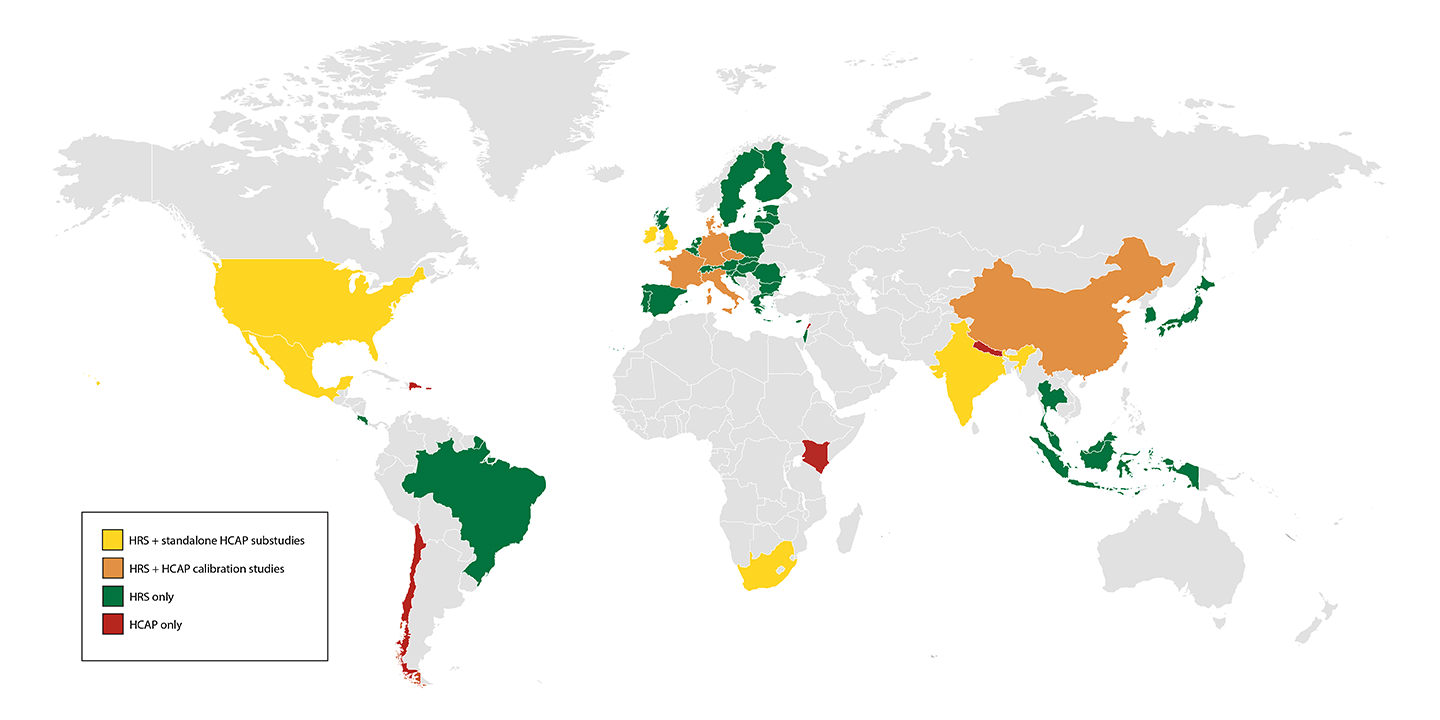Understanding Cognition Through Harmonized Data
Funded by the National Institute on Aging (NIA U24AG065182), the HCAP Network is an ongoing international research collaboration to measure and understand dementia risk within ongoing longitudinal studies of aging around the world. The HCAP Network aims to harmonize methods and content to facilitate cross-national comparisons.
About the HCAP Network
HCAP Network is a group of researchers working together to support harmonization of international studies using the Harmonized Cognitive Assessment Protocol (HCAP). HCAP was designed by the Health and Retirement Study (HRS) team in consultation with several of its international sister studies to provide a flexible but comparable instrument for measuring cognitive function among older adults around the world.
The ultimate goal of the HCAP Network is to develop international data resources for the study of Alzheimer’s Disease and Alzheimer’s Disease Related Dementias (AD/ADRD). These data resources will expand research opportunities to exploit cross-country variation in key life-course factors that likely affect cognitive function and the risk for AD/ADRD, such as educational attainment, wealth, retirement policies, diet, and the prevalence and treatment of cardiovascular risk factors.
At the same time, cross-country variations also raise unique challenges for maintaining the harmonization of tests and measures necessary for good comparative research. The HCAP Network addresses these challenges through a range of pilot projects.
Network Meetings
Beginning in October 2019, HCAP Network began holding annual Meetings. Links to agenda and meeting summary are provided below.
Publications
The HCAP Network maintains a bibliography of publications that report studies using the HCAP protocol.
Funding
The HCAP Network is supported by the National Institute on Aging through the Division of Social and Behavioral Research (NIA U24AG065182).
Studies in the HCAP Network
HRS-HCAP
Health and Retirement Study – HCAP
Chile-Cog
Chile Cognitive Aging Study
CHARLS
China Health and Retirement Longitudinal Study
CADAS
Caribbean American Dementia and Aging Study
ELSA-HCAP
English Longitudinal Study of Ageing – HCAP
HAALSI Dementia Study
Health and Aging in Africa: Cognitive Function, Alzheimer’s Disease and Related Disorders in the HAALSI Cohort
TILDA
Irish Longitudinal Study on Ageing
LASI-DAD
Longitudinal Aging Study in India – Diagnostic Assessment of Dementia
LOSHAK
Longitudinal Study of Health and Ageing in Kenya
Mex-Cog
Mexican Health and Aging Study – Cognitive Aging Ancillary Study
NICOLA
Northern Ireland Cohort for the Longitudinal Study of Ageing
Study Comparisons
The Gateway to Global Aging maintains the HCAP Comparison Table to facilitate cross-country comparisons across some of these studies.

